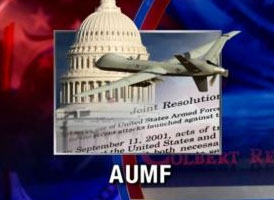Since the US started attacking ISIS years ago, the legal basis for the war has been pretty much non-existent, with officials sometimes claiming the 9/11 Authorization for the Use of Military Force (AUMF) from 2001 covers ISIS too, even though ISIS didn’t even exist when it was passed.
 Congress has long spurned the idea of voting on the ISIS war, however, delaying it early in the war because it was too close to an election, and mostly forgetting about it after that. Sens. Jeff Flake (R – AZ) and Tim Kaine (D – VA) are reviving the push for a AUMF vote.
Congress has long spurned the idea of voting on the ISIS war, however, delaying it early in the war because it was too close to an election, and mostly forgetting about it after that. Sens. Jeff Flake (R – AZ) and Tim Kaine (D – VA) are reviving the push for a AUMF vote.
Flake issued a statement saying it was “past time for Congress to voice its support for the war against ISIS.” Senate Foreign Relations Chair Bob Corker (R – TN) says last year was “not the right time,” but that he thinks conditions might be right now for the vote.
There have been proposals surrounding previous AUMF debates to repeal the 2001 AUMF, with opponents of the war interested in getting the old excuse for it off the books once and for all. There are enough hawks in the Senate, however, that it’s difficult to envision a new AUMF failing, if it did come up to a move, and that would simply offer a new pretext for this war, and for future ones that can be shoehorned in.
Indeed, a big obstacle has been defining the scope of the war at all. Previous AUMF proposals were loudly condemned by President Obama because they might put troop limits on the war, or restrict them just to a few countries. Obama offered his own proposal, which the White House bragged was so vague it would let him do anything he wanted.
In the end, however, Obama wasn’t able to get his unlimited AUMF, and the whole idea just sort of died at the time, with Obama arguing he didn’t need an AUMF at all, but that one might help troop morale.
President Trump’s stance on the AUMF is as yet unclear, though he too would likely reject anything that offers more than token attempts to limit the scope of the ISIS war, as he’s been keen to approve of Pentagon calls for further escalation, and at this point has given the Pentagon direct authority to set its own troop levels in Iraq and Syria.


